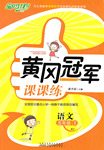题目内容
【题目】假设你是李明,你在报纸上看到一个广告,很感兴趣,但有些具体细节不清楚。请你根据下面电子邮箱地址发封邮件,询问有关情况。
Wanted |
Young person to help with two children Help with languages very welcome Must have experience Accommodation available if necessary E-mail: Cook @hotmail. com |
1. Hours?
2. Which languages? How many?
3. Experience of teaching or caring for children?
4. How about meals?
注意:
1.词数100左右;
2.开头和结尾已给出,不计入词数。
Dear Sir/Madam,
Yours truly,
Li Ming
【答案】Dear Sir/Madam,
I’m writing to find out more information about the job you offered in the ad. First, would you please tell me how many hours should be spent with the children every day? Second, how many languages and what languages are required to use in the job? I majored in English and French was my second foreign language when I was in college. So I can teach English and French. In your ad you mentioned experience. Do you mean the experience of teaching or of caring for children? Besides, how about meals if accommodation is available?
I’m looking forward to your reply and hope to be offered this job.
Yours,
Li Ming
【解析】考查应用文写作。本文对考生的要求很高,首先要读懂原广告的相关信息:招聘能够照顾两个孩子的年轻人,一定要有相应的工作经验,如果能够教孩子语言更好,如果必要可以提供食宿。感兴趣可以联系Cook @hotmail. Com;考生首先要介绍自身情况,然后再提出以下疑问:1.工作时间?2.具体教何种语言?3.工作经验是指教学经验还是照顾孩子的经验?4.用餐情况怎么样?在写作时不要遗漏要点,同时也合理布局。

 黄冈冠军课课练系列答案
黄冈冠军课课练系列答案